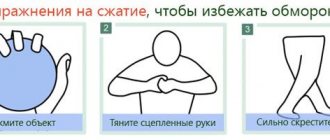- What is personal motivation?
- Personal motivation according to Maslow
- Motivation of personality behavior
- Motivation for personal activity
- Bottom line
Login Registration
Motivation is the leading force that pushes a person to take action. Some may say that many people perform actions unconsciously, without any motivation. Actually this is not true. Absolutely any activity is driven by some internal motives of a person that arise in him throughout his entire development. The fact that a person is not aware of his motives or does not understand how and by what he is motivated does not mean that there is no motivation.
Motivation is a companion to any human action. That’s why you often need the help of a psychologist on the website psymedcare.ru to understand what motivates you, since only a change in motives can motivate a person to take the actions he needs. Do you want to change? You need to start by changing your actions. And if you can’t change your actions, then you need to understand what motivates you in order to change your own motivation.
Which person is the hardest to motivate? There is one such person - yourself. Most often it is more difficult to motivate yourself. You can inspire, motivate, motivate other people to take action. But the hardest thing is to force yourself to do something that has not been done before.
It is difficult to give up your habits, it is difficult to change one job and learn another type of activity, it is scary to change your style in clothes and image. When a person has to motivate himself, it is more difficult to do this, because the person himself begins to experience fears and calculate risks. It is difficult to motivate when the motivator himself begins to refute the possibility of performing a particular action.
Why is it easier to motivate other people than yourself? Because when you motivate another person, you are completely confident in his success. You give many reasons why a person should change something in himself, start working more somewhere, decide on something. The person you are motivating is full of fears, doubts and indecisiveness. He is ready to do nothing rather than face the unknown, fears and difficulties. But here you are a motivator who says: “You will succeed. Take action despite the difficulties. You will achieve better results." And since a motivated person has a desire to change something in his life, that desire plus your confidence in success overcomes all fears and doubts.
This is all much more difficult to do when you yourself want something, but at the same time you find many excuses why you shouldn’t do it. In this case, fears and doubts win, since desire is not yet a guarantee of your success if you begin to act.
So, which person is the hardest to motivate? Yourself. Therefore, gain greater power to motivate yourself or look for those people who will believe in your success and can motivate you to overcome your fears and achieve your goals.
What is personal motivation?
Personal motivation is an internal impulse that encourages a person to take action. However, not every impulse leads to action. Much depends on the individual and other factors within which the individual must operate.
Motivation is an internal push that is based on many factors: needs, beliefs, desires, fears, etc. Conventionally, motivation can be divided into automatic and conscious:
- Automatic motivation is based on reflexes, unconditioned and conditioned, as well as on habitual rituals that have already been formed within a person. An individual is already born with a certain potential - his needs, instincts, desires push him to take action. However, as he lives, he develops conditioned reflexes - when, under certain conditions, a person has a specific desire and, accordingly, performs a specific action. Rituals can be understood as habits - actions that a person has rehearsed many times and now performs unconsciously under certain circumstances.
- Conscious motivation includes willpower when a person intentionally performs actions that will form new rituals in him.
The mechanism for the emergence of motivation is quite simple:
- First, a situation arises with certain circumstances in which a person begins to experience internal desires, needs and even emotions and experiences.
- Everything that has arisen inside a person pushes him to perform specific actions.
- A person takes actions to achieve a certain result.
- When the potential is used and the goal is achieved, then motivation disappears.
However, a person is not always a weak-willed puppet in the hands of his unconscious desires. A person can “slow down” himself on the path to taking actions. He may feel the urge to do something, but use willpower not to do it. A person can also change his motivation, which is only possible with awareness of the original motivation.
How do you slow yourself down? Remember the Snickers advertisement, which talks about “not slowing yourself down.” If you look deeper, we are talking about ensuring that a person has the strength, energy and desire to act towards his goal every day. But if there are no problems with realizing the goal and setting it, then where do you get the energy to start acting?
How do you slow yourself down? How do you stop yourself from taking action and simply moving towards your goal? Let's look at two common methods of “self-braking”:
- Reproach and criticize yourself.
- Afraid of making a mistake and not succeeding on the first try.
People often reproach themselves and criticize themselves. First, other people do this, supposedly driven by good intentions, telling you what you don’t have or what you missed, because of which you may not dream of your goal. And then you join this process, when day after day you find more and more shortcomings in yourself, that is, reasons because of which you can do nothing and become discouraged. How can strength and energy appear under such conditions?
Stop criticizing yourself! Are you imperfect? So what! Is there something you don't have? What is stopping you from purchasing what you need? Finally, admit that any reasons you find are justifications. Everything can be acquired, developed, and some things don’t even need to be paid attention to. Stop reproaching and criticizing yourself! Focus on what you want to achieve and take action.
How do you slow yourself down? Some people begin to experience fears of the unknown that they will have to enter. Someone begins to doubt their own abilities. But there are also those people who give up when, on the very first day of their attempts, they do not immediately achieve their goals. This all sounds a little childish. But as it turns out, many people, as adults, behave and feel like children.
Stop doubting yourself! Stop dreaming that your goal will immediately come true just because you did something to achieve it. Sometimes you have to wait. Sometimes you need to systematically perform some actions. Sometimes you need to go through a certain stage of goal development. After all, even for a child to be born, parents wait 9 months until it takes on the shape of a human body with all its inherent organs. So stop being afraid. Moreover, accustom yourself to the idea that sometimes you cannot do without difficulties and making mistakes. This is all natural and normal. But you are learning. Just don't get discouraged and think that it's all over. After all, this is again similar to the behavior of a capricious child who wanted to make soup out of dirt and water, but it turned out to be tasteless.
Motivation is the basis of personal growth. Important motives on the way to the goal
Let's consider the most important motives and motivations that we can use on the way to our goals. Achieving self-affirmation in order to increase our self-esteem, status in the world around us, and become more significant in the eyes of loved ones is a very important motivation that allows us to most effectively move towards our goal.
The desire to be like a successful person who has achieved great heights in something. Sometimes it is very important, especially for beginning businessmen working on the Internet, to find a mentor, trainer, or coach who has already reached heights in this area, learn to act like him, and then contribute something of his own.
The desire for power , that is, a person works and improves himself in order to control other people.
A person does not act because he has a sense of responsibility for the business he is engaged in; he works not to achieve a result, but in order to acquire power.
It should be borne in mind that this is a very unfavorable motivation, since it is self-destructive.
Action for the sake of action . A person does something because he likes to do it. For example, playing sports.
A person is carried away by the process itself, or a person is passionate about his work, and in this case the motivation is precisely the satisfaction from the work performed.
In my opinion, this is the best motivation and the most effective, because it is very important when work brings not only material satisfaction, but also pleasure from doing it.
The desire for self-development . Very often, the fear that we won’t succeed prevents us from moving forward. Why move forward if everything is fine, peace and quiet.
And only, as psychologists believe, if each subsequent step brings satisfaction and joy, we move forward.
The desire to develop and become better is inherent in us by nature, and only the fear that we won’t succeed often slows us down on this path.
The desire to perfectly master this or that technique , to achieve mastery in some matter. This is a very important motivation, since it leads us to the goal, allows us not to give up if we encounter temporary difficulties and to look for new paths to the goal.
In addition, this motivation is important, as it motivates a person to master new technologies.
The desire to find like-minded people and interlocutors. This motivation allows you to establish relationships and contacts with other people, those with whom communication brings satisfaction.
Another important division of all types of motivations is conservation motivation and achievement motivation. The conservation motivation does not require much emotional or physical effort from us and is aimed at preserving what we already have.
But achievement motivation is exactly what allows us to reach the pinnacle of success. It already requires a lot of emotional and physical investment from us. Psychologists also highlight self-motivation, which helps us, using achievement motivation, to move towards our goal.
Self-motivation consists of three main components, the ability to teach yourself to do your job in the best way, that is, with high quality, to be responsible, and, most importantly, to yourself for what you do and to clearly see the goal for what you are working for.
Personal motivation according to Maslow
Abraham Maslow described in his work what motivates a person. He argued that man is an eternally desiring being. He never feels satisfied. After achieving one goal, he immediately or after a short amount of time has another desire. Since a person cannot be satisfied all the time, one need arises after satisfying another, this forces him to be constantly active and driven.
According to Maslow, a person is constantly motivated by something. Motivations may change, but motivation itself does not disappear. He developed a pyramid of needs, according to which he argues that only when lower needs are satisfied will a person be motivated by higher desires. So, for example, a person will never think about the meaning of life or about painting a picture if he is hungry or lives in an area of seismic activity. Until a person satisfies the needs of his body, he will not think about high matters.
Personal needs according to Maslow:
- In the first place are the basic physiological needs to satisfy hunger, thirst, bowel movements, etc.
- In second place are the needs to ensure one’s safety, when a person builds a house to hide in, surrounds himself with strong people, and trains his body to be able to protect himself on a physical level.
- In third place are the needs of the social level, when a person thinks about love, friendship, the desire to have a relationship with someone, communicate, etc.
- In fourth place, a person feels a desire to receive a certain attitude towards himself: respect and approval of others, love, recognition, and also respect for himself.
- In fifth place are the needs of cognition, when a person experiences interest in the world around him, gets to know it, and studies it.
- In sixth place are aesthetic needs, when a person strives for harmony, beauty, and order.
- And in the very last place are the needs of a spiritual order, when a person wants to develop certain qualities in himself, comprehend spiritual truths, become an enlightened person, etc.
Maslow states that a person moves to the next level of needs only after satisfying lower desires. If the lower desires are not satisfied, then the person gets stuck at that level and does not move up.
It is impossible to say unambiguously what motivates a person, since one action can be dictated by different needs. For example, the desire to eat may be dictated by a feeling of hunger, a desire to calm down or to keep company with another individual.
What is motivation and how does it differ from motive?
Let’s take a closer look at what is behind such a word as “motivation” and why, thanks to it, we can achieve almost any goal. Motivation is a system of internal and external motives that force a person to act in a certain way.
Motivation is directly related to our interests and needs, so it is individual in nature. It would seem that a sea voyage will bring a lot of joy to one person, while another will not have the motivation to earn a ticket, because he has no desire to swim in the sea. Therefore, saving for such a trip will most likely not bring results. The key concept of motivation is motive. This is the object towards which human activity is aimed.
That is, it is a certain human need, a certain reason for actions and decisions. However, motive is different from needs and goals because it is directed toward something that may not be directly conscious. For example, chocolate or cake will become a reason not to start a diet. And a new phone will become a motive not to accumulate and invest money, because the need for immediate satisfaction of desire in the form of a new phone is much more pleasant than the interest from investing in the long term, although we want to live on passive income.
Trade capital bot real reviews
Motive is the reason, goal is the result. The goal is 20% per annum from the investment portfolio, the motive is to travel and not deny yourself anything. To better understand your motivation and understand its root cause, answer the following questions:
- What makes me do something I don't want to?
- What needs and desires do I have?
- What do I expect from my goal, what results do I want to get?
- Is the end goal really meaningful to me and am I willing to sacrifice anything for it?
Motivation of personality behavior
Human behavior is always purposeful, regardless of whether the individual understands his desires or not. Typically, motivation is always emotionally charged. A person always strives for what emotionally excites him.
The motivation for behavior is based on:
- Interests are emotional focus on specific objects that are associated with satisfying the individual’s constant needs.
- Desires (goal) are an emerging need that can be conscious for a person. The individual begins to experience an emotional need for an object that previously did not excite him.
- Intention.
- Attraction is a social orientation that is formed in the process of life.
- Pursuit.
- Settings.
- Passions are affective emotional states when a person is attracted to something beyond his will and conscious desire. Moreover, passion dominates the human will.
Basic human needs
Each person has a fairly wide range of needs that influence the formation of his behavioral motivation or work motivation. However, the management of the organization, when developing a personnel management system, must take into account the basic needs of a person that underlie his motivation for high-quality performance of job duties.
Basic human needs, which are the main motivation for behavior in an organization:
- Physiological needs are natural needs that are inherent in every person from birth (food, air, nutrition, shelter, clothing, etc.). Satisfaction of these needs ensures a person’s very existence as a biological organism.
- Security needs are needs that include the need to be protected mentally and physically, to have a stable income, to be confident in the future, to belong to a certain social group, etc. Belonging to a certain social group is of particular importance; each person, in the course of his professional activity, establishes contacts with colleagues and workmates, which is an important factor that has a positive impact on his work motivation.
- The need for respect and positive evaluation. Each person strives to occupy a certain place in the organization and society, to emphasize his importance with status. For most people, their job is a reflection of prestige and personal achievements in life.
- The need for self-actualization. Every person strives to realize himself and his potential in his profession and personal life. People with a high level of professional self-actualization strive to perform their professional duties to the maximum of their capabilities. Therefore, it is very important to provide such employees with opportunities for career growth.
- Power and influence. Within an organization, this motive manifests itself not only in the fact that a person seeks to influence other employees, but in the fact that he seeks to exercise control over his own workforce, with the goal of greater independence in professional activities.
- Need for achievement. The motive to achieve high professional results is especially important in a competitive environment. A person with this motive is able to take on greater responsibility in solving professional problems.
Need advice from a teacher in this subject area? Ask a question to the teacher and get an answer in 15 minutes! Ask a Question
Motivation for personal activity
The motive is a person’s conscious desire, which he considers necessary, so he directs all actions towards its implementation. However, a person can have many motives. Some of them are leading, others are secondary. If there is a conflict between motives, then a person gives up something or changes his motives.
Motivation is not motivation. Motivation is an attempt by a person to explain the motives of his unconscious actions, which are carried out at the level of instincts and internal needs.
Motivation for activity is based on attitudes - constant phenomena in the human psyche that make him ready for a certain behavior. Attitudes are based on stereotypes that free a person from the need to make a decision.









